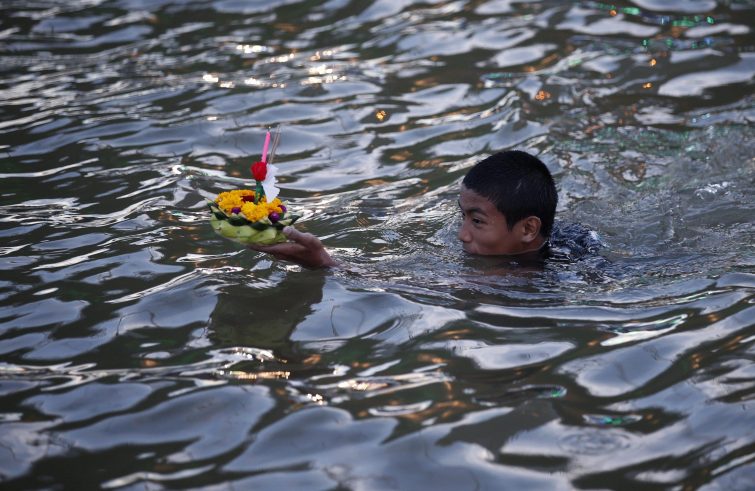
From Maiduguri, capital of the federal state of Borno (Nigeria) – hotbed of ISIS-affiliated jihadist group Boko Haram- to Idlib, northwest Syria, the last stronghold of Tahrir al-Sham jihadists, formerly known as Jabhat al-Nusra, and home to other Al-Qaeda and ISIS-backed militias opposing Syrian President Bashar al Assad’s regime. Though separated by thousands of kilometres, the Christian communities of Nigeria and Syria face the same fear of attacks, kidnappings, discrimination and various forms of abuse, which force them to live their beliefs inside the walls of their churches and homes. That fear grows stronger during the Christmas season and during Easter. “Like sheep in the midst wolves, wise as serpents and innocent as doves” ( Mt.10,16): this is the Gospel passage that probably best describes the life of these communities and of their shepherds. Living in these areas is hard for a Christian; it requires courage and faith. Terrorist violence is met with the weapons of peace and prayer.
Nigeria. Fr Joseph Bature Fidelis serves as parish priest at St Patrick’s in Maiduguri. In 2014, during Boko Haram’s terrorist offensive to establish a Caliphate in northern Nigeria, the Nigerian priest decided to remain with his faithful despite the fact that, he recalled, “I was threatened twice, I saw people being killed and slashed. Those attacks, I strongly believe, will not wipe out the faith of our people.” Boko Haram remains a threat to Maiduguri, but Fr Joseph’s community is preparing for Easter with its usual spirit: “wise as serpents and innocent as doves.”
 “We live in a state of constant tension,” he told SIR, “we expect an attack every time. The likelihood of terrorist attacks increases at Easter and Christmas since terrorists know that attacking us now would have considerable resonance. We are therefore especially cautious when it comes to our religious celebrations, especially during Holy Week.” Thus, caution is the first thing: “We must guarantee the safety of our faith community without exposing them to unnecessary risks. We all realise that we must not spend too much time outdoors and in open spaces where we are most at risk of attack, like churches and adjacent premises.” For this reason, said the parish priest, “Easter services will be very simple and brief. Security personnel will stand guard in front of the churches with our local youths who know the congregation.” All church services will take place in the afternoon hours in compliance with Covid-19 regulations. “We have grown accustomed to this situation,” added Fr Joseph, “but we are also aware that
“We live in a state of constant tension,” he told SIR, “we expect an attack every time. The likelihood of terrorist attacks increases at Easter and Christmas since terrorists know that attacking us now would have considerable resonance. We are therefore especially cautious when it comes to our religious celebrations, especially during Holy Week.” Thus, caution is the first thing: “We must guarantee the safety of our faith community without exposing them to unnecessary risks. We all realise that we must not spend too much time outdoors and in open spaces where we are most at risk of attack, like churches and adjacent premises.” For this reason, said the parish priest, “Easter services will be very simple and brief. Security personnel will stand guard in front of the churches with our local youths who know the congregation.” All church services will take place in the afternoon hours in compliance with Covid-19 regulations. “We have grown accustomed to this situation,” added Fr Joseph, “but we are also aware that
we cannot give in to fear. We face a daunting challenge, but we must be courageous because Easter reminds us of the victory of life over death.
We also know that there can be no victory without suffering and sacrifice, no empty tomb without Calvary. We endure this persecution in the certainty that ultimately our reward will be joy and victory in Christ”.
“There is not only evil in our midst, we live with many people, with many brothers and sisters of other faiths with whom we are building a future of coexistence and peace.”
Syria. There is a small Christian community living in the Governorate of Idlib, in northwest Syria, consisting of just over 210 families, spread across three villages in the Orontes Valley, Knaye, Yacoubieh and Gidaideh. With them are two friars from the Custody of the Holy Land, the parish priest of Knaye, Father Hanna Jallouf, and his confrere Father Louai Bsharat. They are the only remaining clergy in the area. They have been carrying out their mission “among our faithful and with our brothers and sisters of other faiths who are in need” for the past 10 years.
 “All the priests there fled after militiamen destroyed and plundered numerous churches and places of worship,” said Father Hanna, kidnapped in 2014 by Jabhat al-Nusra jihadists along with 16 other parishioners and then subsequently released. The Russian-backed Syrian army and Turkey-backed rebels of the Syrian National Army and of Tahrir al-Sham (HTS, formerly Al Nusra) jihadist brigades are battling in Idlib. All roads are closed, we can’t leave the province or travel to Damascus, Aleppo or Latakia”, said Father Hanna. This complicates our situation further because “our community is made up of elderly people, many of whom are sick and would benefit from treatment elsewhere. Moreover, almost 80% of our community has been infected with COVID-19.
“All the priests there fled after militiamen destroyed and plundered numerous churches and places of worship,” said Father Hanna, kidnapped in 2014 by Jabhat al-Nusra jihadists along with 16 other parishioners and then subsequently released. The Russian-backed Syrian army and Turkey-backed rebels of the Syrian National Army and of Tahrir al-Sham (HTS, formerly Al Nusra) jihadist brigades are battling in Idlib. All roads are closed, we can’t leave the province or travel to Damascus, Aleppo or Latakia”, said Father Hanna. This complicates our situation further because “our community is made up of elderly people, many of whom are sick and would benefit from treatment elsewhere. Moreover, almost 80% of our community has been infected with COVID-19.
 Two members of our community have died. Thank God now all those infected have recovered and even the Covid health clinics are closing because there are no more sick people. Our faith community includes several young couples with children. We help everyone with food and fuel, while also trying to provide some schooling and religious education.” “One of our parishes is devoted to St Joseph, and like Jesus’ putative father, we work in silence,” pointed out Father Hanna. Here silence also means that “we cannot toll our church bells, we are not allowed to wear our religious habit outdoors, we are not allowed to display crosses on church steeples and religious images outside, and our liturgical services must be celebrated only inside our churches. It will be the same this coming Easter.”
Two members of our community have died. Thank God now all those infected have recovered and even the Covid health clinics are closing because there are no more sick people. Our faith community includes several young couples with children. We help everyone with food and fuel, while also trying to provide some schooling and religious education.” “One of our parishes is devoted to St Joseph, and like Jesus’ putative father, we work in silence,” pointed out Father Hanna. Here silence also means that “we cannot toll our church bells, we are not allowed to wear our religious habit outdoors, we are not allowed to display crosses on church steeples and religious images outside, and our liturgical services must be celebrated only inside our churches. It will be the same this coming Easter.”
“Despite so much suffering we feel we are living a moment of grace that we wish to share also with those who support and sustain us.”









